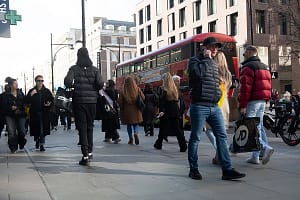Hong Kong’s domestic sentiment has been hit severely by the protests in the territory, according to Oxford Economics. This, plus spill-overs from the US-China trade tensions, leads us to expect Hong Kong’s economy will fall into a technical recession in Q3 2019, with GDP contracting further after the drop seen in Q2
Retail sales and tourism have been particularly hard hit, and are likely to fall further as we see no sign of the 11-week old demonstrations in Hong Kong ending soon.
The political turmoil has also led to growing concerns in the international business community over the city’s medium- to long-term stability.
Protests in Hong Kong, which have now entered the 11th week, look unlikely to end soon. Initially, the protestors were opposed to the government’s intention to introduce legislation to extend extradition arrangements to jurisdictions that Hong Kong does not yet have treaties with, including mainland China. The proposal stirred up public fears over greater political interference by Beijing, and this now risks undermining confidence in the city’s rule of law, despite the suspension of the legislation on 15 June.
The protestors are now demanding a complete withdrawal of the bill rather than a suspension. Other demands include a call for an independent inquiry into the actions of police during the protests and genuine universal suffrage. With little room for negotiations with the government, more protests have been held, with some calling for a ‘valiant’ struggle, escalating clashes with the police.
Even before the political turmoil in June, Hong Kong’s economy had begun to slow. Since Q2 last year, the escalation in the US-China trade war and cooling in China’s economy have weighed on growth. With Hong Kong’s economy closely integrated with the mainland, these adverse dynamics have not only depressed Hong Kong’s exports, but also its consumption and investment due to poor sentiment and rising economic uncertainty.
What’s more, given that Hong Kong is a small open economy, stuttering global demand and a re-escalation in US-China trade tensions – despite the fact that the US has postponed additional tariffs on a range Chinese consumer goods – will continue to impede the economic outlook for the city.
We think the impact of the domestic political turmoil will add further downward pressure on the Hong Kong economy. As such, we expect the Hong Kong economy to dip into a mild technical recession in Q3, with GDP continuing to fall after contracting by 0.4% quarter-on-quarter in Q2. For 2019 as a whole, we expect GDP to grow a mere 0.6%, much slower than the 3% in 2018.
Retail sales, which had already been dropping before the demonstrations started in June, are likely to decline further. We also expect inbound tourism to fall, particularly as the number of visitors from mainland China is likely to drop significantly. These will all weigh on private consumption and exports of tourist-related services in Q3, and possibly beyond, on top of the drag from the weak external environment.
In our view, the near-term economic outlook is now worse than the situation back in Q4 2014 during the peak of the Occupy movement. Back then, Hong Kong’s GDP was still growing at a positive quarterly rate, underpinned by robust domestic demand. However, this time the protests are much more widespread and have continued to intensify. This has caused shops and businesses to close during protests, adding to the economic fallout. Still, our forecast is for a milder hit to the economy than seen in the global financial crisis, when GDP contracted by 2.5% in 2009.






Leave a Comment